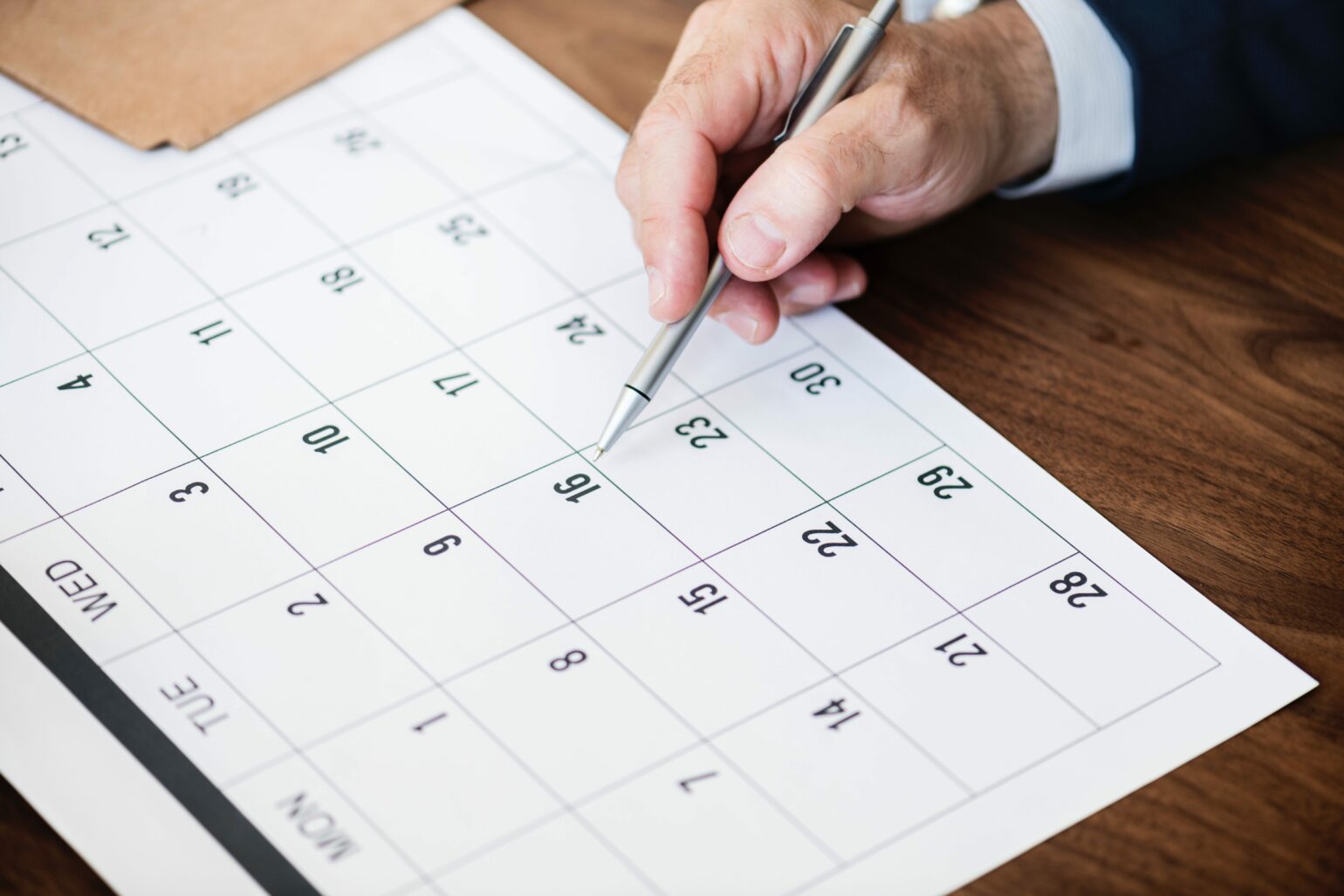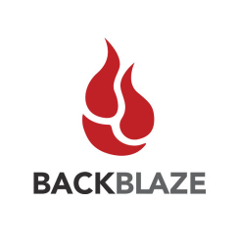Learning good time management tips is essential in tech—whether you’re just starting out and trying to find the best time to study, or searching for how to increase productivity in your job or projects.
 Pauline Narvas describes herself as a passionate “multi-hyphenate” – a person with a hyphenated profession. She is a self-taught developer, a speaker, and a community builder, who currently works as a remote developer and in DevOps with the EE brand of British Telecom. With all of these commitments, Pauline has to know how to prioritize!
Pauline Narvas describes herself as a passionate “multi-hyphenate” – a person with a hyphenated profession. She is a self-taught developer, a speaker, and a community builder, who currently works as a remote developer and in DevOps with the EE brand of British Telecom. With all of these commitments, Pauline has to know how to prioritize!
Today, she’s on the podcast to share her time management strategies and system for productivity. Listen to the episode below.
This episode was transcribed with the help of an AI transcription tool. Please forgive any typos.
Laurence Bradford 0:07
Hello and welcome to another episode of the Learn to Code With Me podcast. I'm your host, Laurence Bradford, and today's episode is all about time management strategies and productivity. But first, a quick word about this episode's wonderful sponsors.
Laurence Bradford 0:23
Flatiron School's online data science boot camp gives students the knowledge skills and the experience they need to land jobs as data scientists start learning for free with their data science bootcamp prep course, just go to flatironschool.com/learntocodewithme to get started.
Laurence Bradford 0:41
Backblaze provides cloud backup that's astonishingly easy and low cost backup of your data and access it from anywhere in the world for just $5 per month. Start your fully featured 15 day free trial today by going to backblaze.com/learntocode.
Laurence Bradford 0:59
Today Talk with Pauline Narvas. Pauline is a self taught developer speaker in Community Builder. She's one of those people who has been coding since they were eight years old. However, she never studied computer science in college. All of her tech skills are self taught. And today she works in DevOps. In this episode, though, we chat all about time management techniques, productivity, in other areas related to health and wellness and the role of plays in one's professional life. I really love talking to Pauline, and I think you're really going to enjoy this show. So let's get into it.
Laurence Bradford 1:39
Hey, Pauline, thanks for coming on the show.
Pauline Narvas 1:41
Thanks so much for inviting me.
Laurence Bradford 1:43
Yeah, I'm so excited to chat with you today about productivity tips and so much more. But I wanted to start off by mentioning one things so that the listeners could get some context. before the interview. We we research guests, and you know, we asked people to come on the show, and I thought that you were So much older than you actually are, because you have like this really long, impressive background. But turns out, you just graduated college. But looking at your LinkedIn looking at your website, looking at your your work, I thought you were probably five to 10 years older than you actually are.
Pauline Narvas 2:16
Wow, that's so new. Like, normally people see me and meet me. And they're like, Wait, you're 22 I look like Yeah, yeah. And then they're like, you look like you're 16. So that is the first time for me. But yeah, thank you. But that does mean a lot.
Laurence Bradford 2:32
Yeah. So you got started in tech at a really young age. I'm guessing because your LinkedIn goes back. Like, I felt like it went back like 10 years. So how old were you like 12?
Pauline Narvas 2:43
No. So I was actually eight years old. I know. Yeah. So basically, I started my journey into tech. When I was eight. I decided that I wanted to recreate a game that I was playing at the time and then After that, I learned how to code just from like trial and error and obviously the into that. So yeah, I was just learning for fun. And now like loads of things have happened in between but now I, I, I do I work in tech as my full time job so.
Laurence Bradford 3:17
Wow, so you've actually been working in tech for I'm trying to them at 14 years?
Pauline Narvas 3:22
Yeah, like technically Yeah.
Laurence Bradford 3:25
Wow. That's like yeah, insanely impressive. So could you tell us a bit about what you're doing now and you know, now that you're officially a college graduate?
Pauline Narvas 3:35
Yeah, I'll I can go back from like the beginning and just talk about the in between and everything. So I again, like I said, I started when I was eight, learning how to code just for fun. Then I just carried on learning how to code for fun, like as a side hobby. So I built all these websites, for my own like blogs and by my like, Things that interested me at the time. So one good example was when I created a website for like High School Musical because I loved it so much. So I made like this huge like fun site about it. So I did loads of websites over the years and then I went to school and I went and did computing because I loved my computer. I love the internet. I love learning about everything related to computers and tech. And then after that, I just when I when I went into my computing class, I was the only girl there so I felt really out of place and boys aren't very nice at that age as well so..
Laurence Bradford 4:41
What eight sorry, eight was just in college are you talking before that?
Pauline Narvas 4:44
Oh, this was before like at school and then I go into college right?
Laurence Bradford 4:48
Got it. Got it.
Pauline Narvas 4:49
Okay, so So yeah, man. Yeah, I was the only girl there and then felt really outlays because like boys are really mean at that age. I think I was about I want to say 1415 And then after that, I decided that for going to college or university, as we say, here in the UK, I decided that I'm going to go and do biology instead because I felt a bit more accepted like there was a balance between males and females. So I decided to go into university in the college, and I did a my degree and biomedical sciences, so completely different from Tech and, you know, software engineering or anything like that. So, so yeah, and then I went into biomedical sciences, loved it, but then I was like, I'd started slowly realizing, but biology related jobs isn't for me. So I went on and started exploring elsewhere and really like, like sort of relearn that I love tech.
Pauline Narvas 5:52
So I set up like a coding community in the university I was at and then after that, I loved it and realize that I I want to go into tech. And now I've just started well, in September, I officially started my like, first real tech job that isn't like an internship. So it's a actually a graduate scheme, which is so which is like a training scheme. So I'm working for one of the biggest telecommunications companies in the world, British Telecom. I'm working within the E brand, which is a mobile network within B, within bt, where I'm working with the development and operations teams. It's really, really good. It's really exciting. And I'm just I'm really happy because I'm learning so much every single day.
Laurence Bradford 6:46
Yeah, awesome. So I have two follow up questions with that. The first thing I want to know did you switch majors like did you officially switch from biomedical sciences to computer science, or did you graduate with the biomedical sciences degree?
Pauline Narvas 6:59
No I actually graduated with my band biomedical sciences degree and when it came to looking for tech jobs, I thought nobody would want me but alongside my biomedical sciences degree, I did loads of internships in tech. And I got a really built up that experience side of like my CV rather than my like, like formal education. So I built up experience in the industry. And then when it came to applying for a grass job, I, I got it because of you know, my experience in tech and obviously like passion towards it, and I think that is the main thing but the company was looking for.
Laurence Bradford 7:38
Right. So I also would love if you could tell us what the graduate scheme or training scheme is. I think I know what it is, but I'm not 100% Sure. So could you clarify?
Pauline Narvas 7:51
So a graduate scheme in the US is is quite a popular scheme slash program here in the UK. So after Have you after students graduate from university or college, they get to go to, they can apply to a graduate scheme, which is sort of a fast track into a company. So it's, it's like a training scheme where you, you have six so far with my training scheme, I have six months in one team, and then I get to switch in after the six months. So I have four, six month rotations, lasting two years. And then after the two years, I can go ahead and pick which area I really enjoyed working in. So for example, right now, in my scheme, I'm working in a development and operations team. But my first rotation is in digital architecture, which is looking at more at the higher view of all of the systems and ensuring that propositions go into the business and that it all aligns with our prints. spools and, and then obviously passing that on to the delivery teams. So my first rotation is in architecture. And then my second rotation is more in the development side of things. So it's a really great scheme to, for graduates to, like go into and see what areas that they're like interested in. And then eventually, like, once they finish the training scheme, they can eventually like specialize in one of the teams that they like the most. So yeah, it's a it's a really good opportunity. And I'm glad I'm on it.
Laurence Bradford 9:33
Awesome. Yeah, no, that makes a ton of sense. Now, that's what I was kind of assuming that it was but just want you to clarify for me and anyone else, anyone else listening who wasn't 100% clear. So. So again, going back to like, you're 22 years old. And I was looking at your LinkedIn, your website, you have all of these awards. You've all these points of experience on your resume or CV. And I like how did you do it all like how How're you? Like, like, I'm just looking back when I was 22. And before that, you know, you started claiming your eight when I was like in middle school in high school, I was not winning tech awards or any kind of award. I you know, I was probably playing like RollerCoaster Tycoon if you know, what are the Sims or something on my computer? And I know it's such a blunt question, but like, how did you become this way?
Pauline Narvas 10:21
Well, so, oh, gosh, this is a really broad question. But basically, when I went into university, my in my second year, I realized that this is when I sort of just realized that actually, I don't like my degree, and I don't see it going anywhere. And I didn't like any jobs related to it. So I was just like, oh, so I found myself in sort of this, this state this mindset where I was stuck and confused for like, quite maybe most of my second year. So I was like, okay, after, after like Sort of beating myself up about like choosing the wrong degree, I sort of just snapped out of it. And I said, actually, like, I can make the choices now. And then my choices now will have a huge impact in my future. Like, no one is telling me to like, sit down and do this degree and then force, there's no one's like forcing me to do the job related to my degree. So I try. So after sort of that, like, mindset, mindset shift, I sort of was like, actually, yeah, I'm in control of my life. I'm in control of the path that I want to take. So I decided I literally, after I had all of these, like, stressful, you know, moments, I sat down and I had a piece of paper and I was like, Okay, what do I actually want to do? I put down all of my strengths, all of my weaknesses, all of my interests.
Pauline Narvas 11:55
And then I was like, Okay, which one do I want to focus on and I decided That actually, tech was the route for me. And so, um, so yeah, I think I've always been like that since I was younger. So I've always been quite driven once I get out of my slump. So after I got out of that I was really driven I was really motivated to really change and take control of my, my life. And after, after I took control and sort of saw the direction I was going in. I started I really focused on tech I focused on my internships I focused on the community work I was doing and I really gave it my 110% and that was in 2017, where I literally was 110% delivery, I focused on results and focused on getting the most out of my internship, even if like I didn't like an aspect of it. I really try my best and then in early 2018 this year I started getting a lot of recognition for my community building work because I'll gain recognition for, for the work I was putting out online because in addition to helping the community, my local community, I was also trying to build what I was doing in my local community online as well and with my blog, and that reached a ton of people and yeah, 2018 has literally just been a year of all of my hard work sort of paying off. And obviously then I got my full time job but one of the best like telecommunications companies in the world, which is incredible, so, so yeah, it's, it's sort of just is, it was a mindset, like, shift and a decision to try my best. No, like, at the end of the day, no one was gonna say, okay, Pauline, here you go. Here's like the opportunity. You really have to for me, I really had to fight and sort of make that own path. So, I don't know if that really answers your question, but I think it is. It is. It's It's like being aware and making that decision to do something great for yourself so..
Laurence Bradford 14:12
Yeah, no, I absolutely love that and so many other guests in fact, probably like all other guests I've had on the show where we have conversations kind of like this have pointed like a similar experience or have take control of their mindset, you know, every single day, one of our guests on this season, Rebecca, she, she said something so great. She's like, every single day, I coach myself like every single day, I have to like mentally get myself into this state and push myself and get there and no one else is gonna do it for me, and I have to do it myself. And I think that totally answers the question. I would love to talk with you though about, like time management and productivity tips because you were you know, just Last year, the before you're studying biomedical sciences, you're doing work online, you're doing community work, you're doing internships, what advice can you share with people like for managing time in a way that you have?
Pauline Narvas 15:12
Oh, okay. So, um, one of my favorite topics to talk about, I have to say. So I think like, like I said earlier is a mindset shift. So you have to be in that mindset to, like, take control of your time. So for me, even in my first year of university, before I was doing community work before I was doing everything I struggled, so much studying and maintaining my part time job. So that was already like, really, that was such a big challenge for me. But what sort of helped me with that was, you know, sitting down and being like, actually, this is what I have. I have 24 hours in the day I need to sleep. I need to do this. So what can I do? What can I do I need to take control of my time. So it is a mindset shift and a decision you have to make that you you know, you want to prioritize that time instead of, you know, wasting it on something else. So with me, I think my main tip, and the main thing that got me through my, you know, my final year university where I was writing, like long dissertations and stuff like that, what helped me a lot was using my calendar.
Pauline Narvas 16:28
So it doesn't matter if you have a digital calendar or a paper calendar or you write your calendar like on I don't know, your toilet paper or whatever. It doesn't matter where you how your calendar, I think calendars are what's really helped me prioritize my time and see where, where my time goes. So for me in my final year, I was studying I was doing community work. I was doing tech tech talks. I was I had two part time jobs. And about like, when I, when I say or when I list at all It seems like impossible to, to do all at once but but my calendar really helped. So what I usually do is on a Sunday, I, I have I sit down and I pull up my Google Calendar and I plan out and block out some time for me all the things I need to do that week. So when I was a student, it was like study a module or finish your assignments. So I blocked time to really just sit down and focus on those things. I mostly did all of my really important tasks in the morning as well because that helps me just get it done quicker because I'm much more productive in the morning. So So yeah, I blocked out each every single activity like every single thing and put it all in my calendar so I even blocked out time. For lunch, I blocked out time to go to the gym, blocked out time to practice yoga practice mindfulness. And after, like after you like try it for a week, just blocking out your time and sticking with it, you eventually get into that routine, you eventually get into that flow.
Pauline Narvas 18:18
And it just, it just helps. It just works. So I think my main main manage time management tip is to use your calendar. Really, really utilize it, because it just shows you the time that you do have. And then after that, it's just all about prioritizing. So for me, it was categorizing what is most important. So for me in my final year, it was studying for an upcoming exam or finishing an assignment for a specific module. So I made sure that I put those like those two main things first at the top of like the first thing I do in the day and then obviously like And then other things like work in the afternoon in the afternoon, because my job was a, one of my part time jobs was remote, so I could do it wherever, wherever I was. So, so yeah, I blocked out time for that. So yeah, I think blocking out your time prioritizing and understanding yourself having that self awareness that, you know, this is when I'm most productive. This is when this is when I'm not that productive and when I need to take a break, so I think having that like awareness as well really helps.
Pauline Narvas 19:37
And another thing that has helped me manage my time is focusing, having focused music sorry, so I always have like focus music in the afternoon, because in the morning, I don't need it that much. But in the afternoon, I'm starting to after lunch, especially I'm starting to like, get a bit less productive getting a bit more sleepy. wanting a nap. But having focused music helps for me. Right now I'm using an app called Calm, it's a meditation app, but they have a music section. And it really just like, helps me, you know, focus on a specific task. And yeah, and also have like a specific spots that helps you focus. Because I feel like when you're sat down in a place that is full of distractions, you're never going to get anything done. Even if you've blocked out time, even if you know your priorities. So just make sure that you have a good environment that has that doesn't have a TV or that a room that calms you and a space that really allows you to want to be productive. Want to have that mindset of, you know, smashing your goals and making sure you finish. You tick off everything on your to do list. So yeah, I think those are my main advice.
Laurence Bradford 21:01
Sit tight podcast listeners, we're taking a quick break to hear a word from our sponsors.
Laurence Bradford 21:07
Since 2012, Flatiron School has helped more than 1200 students launch new careers in tech. And now they're helping their students break into one of Tech's most in demand fields data science, there has been a 650% growth in data science jobs since 2012. In fact, data scientist and machine learning engineer jobs are the two fastest growing careers in all of technology. With Flatiron School's online data science boot camp, you can take advantage of that growth and land a job as a data scientist sooner than later. Thanks to their tried and true curriculum, top instructors and dedicated career coaches, you can change careers with confidence. Even better if you don't get a job offer after working with Flatiron School for six months, they'll give you your money back. Start learning for free with Flatiron School's data science boot camp prep course, just go to flatironschool.com/learntocodewithme to get started.
Laurence Bradford 22:11
Backblaze provides unlimited cloud backups for Macs and PCs for just $5 per month. It backs up your code documents, music, photos, and videos. Basically, everything you could possibly need to protect completely automatically access your data from anywhere in the world, whether that's via your computer or on the go using their iOS and Android apps. Even better, you can recover just one file or all of your files, the choice is yours. And if you do have a complete system failure, you can buy a hard drive with all of your data and have it sent overnight via FedEx. You can even return the drive to Backblaze and get a full refund. With over 700 petabytes stored and 35 billion files restored. You can count on Backblaze to protect your data. It's gimmick free with no hidden charges just $5 a month. For full backups and peace of mind, to start your fully featured 15 day free trial, go to backblaze.com/learntocode. That's backblaze.com/learntocode. Try Backblaze and start protecting your data today.
Laurence Bradford 23:20
Ooh, so many gems there. Thank you. So you just mentioned to do list and I was thinking about this when you were speaking. So you use a calendar, you block out time in your day Got that? Do you also use like a to do list outside of that to like Mark things done as you do them? Or is okay, yeah.
Pauline Narvas 23:37
Yes, yes, I do. So, like I said, I have, I have sort of a system. So I'll quickly talk you through that. So I have my Google Calendar, I block out the time to, to do like a specific like assignment or a specific task. But I also have my to do to do list. I as a user, To Do List, it's that's to do and then I fit to do list. And that's literally just a list of things I have to do. So that's more in details. So, for example, for my assignment, finish assignment, make sure you have your references, make sure you get it peer reviewed, etc, etc. Whereas the time I have the thing that I have on my calendar, it's more like two hours for to finish assignment or two hours to write a blog post. And then in my to do list, there's more details because it's, sometimes I look at my calendar and it's like, Okay, I understand the areas of priorities, the areas of Yeah, the areas of priorities and things I need to do. But my to do list is my to do list is focusing more on the actual task itself. So it helps me sort of like Focus on Yeah, on the task rather than having a broad view of what I need to do, if that makes sense. So yeah, so that's, that's my system.
Laurence Bradford 25:10
Yeah, that totally makes sense. So do you use anything else? Aside from those two things like the to do list app? I've think I've used it. Well, we'll add a link to the show notes. Use your calendar. Is there anything else? And outside of that are those like the two main things?
Pauline Narvas 25:23
Oh, those are the two main things to help me manage my time and increase like my productivity. But I think another thing, like I mentioned earlier, is having the focus music so. So calm, the meditation app really helps me. I think I've I've actually included it in my productivity folder on my phone. So I class it as a productivity app, even though it's a fitness and health app so..
Laurence Bradford 25:49
Interesting. So I just want to mention another resource here for the listeners. I used to actually pay for this will include the link it's called focus at will and it's like I'm not going to get into it all. But here people want to check it out thing by the website. But it's like music specifically, like it literally says scientifically optimized to help you focus at the top of the page. And that's like their whole business is just creating different playlists and music for different kinds of focus different kinds of people, because some people need like the creative, some need the logical, whatever, whatever. So people want to check it that out. We'll add a link to it. But yeah, I used to pay for that. I stocks for me, I don't feel like the music has as big of an impact on me. I think it used to but I won't go off on a tangent with that. I wanted to also ask you, how do you figure out what to prioritize in your day to day so you said like, okay, on Sunday, I'll sit down, I'll plan out my week. But like, what kind of factors or decisions do you use to be like this is higher priority versus this is lower priority.
Pauline Narvas 26:48
So for me, it's the first thing I look at is deadlines. So if a particular project needs to be delivered by a certain date, I'm like okay, obviously, this is doing For next week, or this is doing for in two weeks or tomorrow or whatever. So obviously that's top priority. But if there's like no deadlines or the deadlines are more like a long term thing, I usually make sure that I prioritize the harder tasks first because I this is really on this is totally like a an unpopular opinion but I actually really enjoy admin tasks because they really help like soothe my mind. So emails and all of that I love, I love doing them, but I make sure that I do them in the afternoon rather than the morning because like I said, I am my most productive in the morning. So I make sure that the more difficult tasks that require a bit more thought a bit more energy, I make sure that I prioritize them first and then the low priority ones or ones that don't use up my energy as quickly so so Like I said, admin tasks, and I usually do them in the afternoon. But that's sort of a very general way of how I prioritize my tasks.
Laurence Bradford 28:08
Right. Right. Cool. Thank you for, for sharing another thing that you talked about that I want to get your thoughts on. You mentioned going to the gym, you mentioned yoga and mindfulness and scheduling time for those during the day. What role do you think those things have on your productivity?
Pauline Narvas 28:27
So I go to the gym. Like, that's the first thing I do before anything else. I also do meditation and yeah, mindfulness. So I make sure that I do those first thing before anything else because they really set out my day. I think. I'm sure that their scientific research somewhere, but the endorphins have like it, they just, they have such a huge impact on me. It's so positive because I've noticed how when I don't to the gym, I am much more sluggish in the morning and my mornings feel more like the afternoons, if that makes sense. So, so yeah, they do make such a huge difference to my day and, like in so yoga I usually do those in the evenings or in the weekends when I don't want to do like heavy weights or anything like that.
Pauline Narvas 29:21
So I do yoga, especially after like a very stressful day. It's helped a lot because you know, when you you know, in the middle of the week, I'm sure we've all had these days but in the middle of the week, you feel really overwhelmed with all of the tasks that you have to do all the projects you need to deliver, but then you go to yoga and then it feels it just really suits you and makes you feel like it's okay because there's always tomorrow there's always next time to you know, catch up and yeah, it really that evening routine. On my, on my on my more stressful days really helps out the days for sort of reset the day for tomorrow instead of being focused in that negative mindset that oh my gosh, it's so overwhelming I can't do it. I can't do it sort of thing. So I think Yeah, my, my health and fitness routines are so vital as part of my productivity and you know, just general outlook in life.
Laurence Bradford 30:20
Yeah, totally makes sense. So she scheduled time for you know, all these different things. You're super productive. You have all these awards, you're very prolific you've right you do speaking events, you you know, well, now you have a full time job and all that. What about breaks? What about social life? What about vacation? Like how do you plan those things out? Do you plan those things out? Do you have like set time during the day you take breaks? I'm curious, like, how you handle that.
Pauline Narvas 30:50
Um, so thankfully, my, my job right now is they they're such like, they're really like pro what life balance. So the Promote like breaks a lot at work so for example we have yoga sessions in the office every Wednesday in it's because everyone needs like a pick me up on Wednesdays So, so yeah, like with breaks, I make sure that I stand up from my desk at least once and every hour just to walk around like to the kitchen to get some tea or water or just just walk around the office. So that's my generally my breaks and they're generally like, you know, spread around my day. As for like, breaks in between, like working weeks and stuff. I make sure like my Sundays are always really chilled out. I make sure that I don't do I don't plan anything on my Sunday. So on my Sundays, it's literally just the only thing that's blocked out on Sundays is chill That, that time is literally for me to do nothing at all. And to it's sort of a good reminder for me as well to say, but you know, it's okay that I don't do anything.
Pauline Narvas 32:10
Because I have had, I have had weeks where I'm studying, I'm working, and then I have an event to run, like over the weekend, like hackathons, for example. And those weeks have truly, truly burnt me out. And then eventually it takes me like, maybe a week and a bit to, you know, fully recover. And that's weird like things in between as well. So, being burnt out is never good. So always take breaks. And for like, as in as for like social life and stuff like that. I make sure that I plan like any parties in advance. So usually when my friends are going out, or that there's if there's an event or anything, they usually tell me anyway, because I think a lot of my friends know that I'm very particular with my time So they tell me anyway, but obviously like not everything is planned things happen ad hoc things and I usually have to make that decision to you know, to say like yes or no depending on what my workload is like and what I want to get out of the week.
Pauline Narvas 33:20
So so yeah, for example, if I wanted to if a friend invites me but I have like a deadline coming up. I really have to like I usually look at my calendar usually look at my to do list and usually look for flexibility in between the days you know that they invite me for something and then decide from there. Usually, I do make changes during the week depending on what's you know, what these are talking bytes and things happening in life happens. So. So yeah, I usually just make a decision based on based on that. I think it is really important to, to not overwork yourself and to give yourself flexibility during the day. Like, I know I was talking about blocking a lot of time out, but don't have it so that it stresses you out because that's not the point of it. It's mentor, like, not stressing you out as a mentor make things easier. So you have sort of a schedule, but at the same time, accept that life happens. So it's okay to have flexibility.
Laurence Bradford 34:25
Yeah, I feel like I'm that kind of attitude and mindset, being good with the changes and staying flexible. I'm sure yoga and meditation help help with as well.
Pauline Narvas 34:38
Definitely does. Yeah, I don't think so. Before I did. meditation or yoga, I literally was such a workaholic. So every single second of the day, I was either writing a blog post studying or you know, planning a talk or whatever. So it was always like on on on and eventually like, I I have suffered from burn burning out. So, and it's not a good feeling. It's not a good feeling at all. So I think it's important to be flexible and not beat yourself up over it. So my loads of my yoga sessions and my meditation sessions have taught me that it's something that you eventually like, cultivate into your mindset and your routine. And it is just all about self talk. So how you talk to yourself about missing a deadline, or, you know, or miss not being flexible and stuff like that is is a mindset because at the end of the day, if you do miss a deadline, or you know, because of certain circumstances, then, you know, that's just life you have to accept instead of, you know, beating yourself up over it, and I've been in, in both like extremes before, so.
Laurence Bradford 35:52
Yeah, real quick. When did you start doing yoga in the meditation?
Unknown Speaker 35:58
Oh, so I started it. In the summer of 2016, because I had a very personal thing that happened to me. And alongside that it was the same year, I was very confused about what I wanted to do with my life. So something personal happened. And man, it really just woke me up. And it motivated me to really take control that was all in the same sort of year, the same month. So, so yeah, and ever since then I've not stopped so.
Laurence Bradford 36:28
Wow. And, you know, you mentioned this, but just you do meditation, like every morning?
Pauline Narvas 36:33
Yes, every so in 2016. I was every morning for a year and three months. It was it was like a very long streak. I was very proud of myself. But nowadays, it's like, maybe four, four times a week. And it's just because I feel like I I got a got a lot of the benefits from meditation in my first year. Sometimes I focus more on other tasks. So for me, it's been like the gym, and making sure I get my full workout in. So and the gym for me has had the same meditate meditation benefits. So, so yeah, but yeah, meditation is fantastic. And I truly recommend it to anyone. And if anyone wants to get started, I recommend using calm or headspace. They're both fantastic apps to really help you get into that routine.
Laurence Bradford 37:31
Amazing. I know I feel like I could probably have a whole a whole episode just about meditation and mindfulness and I know I could keep going on about it. But unfortunately, we're running low on time. But so thank you so much for coming on Pauline. Just so many so much great wisdom and tips that you shared. I know the listeners are gonna get a ton of value from this episode. Where can people find you online?
Pauline Narvas 37:55
So people can find me usually tweeting on Twitter. My twitter twitter handle is Paulienuh. That's about P-A-U-L-I-E-N-U-H. And I'm also on Instagram @paw.line. I also write a blog pawlean.com and that's about p-a-w-l-e-a-n.com. I also have a portfolio site, Paulinenarvas.com and I'm on LinkedIn, I was Pauline Narvas. I'm everywhere. If you type in Pauline Narvas, I'm sure you'll find me.
Laurence Bradford 38:30
Thank you so much for sharing those will include all the links in the show notes. And thanks again for coming on.
Pauline Narvas 38:35
Thank you so much for having me. It's been such a pleasure.
Laurence Bradford 38:44
That's our show. Thanks for tuning in. For recap, order browse through other episodes in show notes, head on over to learntocodewith.me/podcast. If you like tech related content like this podcast, make sure to sign up for my email list you can do so easily right on the homepage at learntocodewith.me. There's a big signup form right at the top. I'll send you new blog posts tell you about time limited course deals and much more. It was great to have you with me today. Join me next week for another episode.
6 Tech Time Management Strategies
Here are a few of Pauline’s main time management techniques to get her through the day.
1. Decide to take control of your time
First things first! “One of my favorite topics to talk about, I have to say, is a mindset shift,” says Pauline. “You have to be in that mindset to take control of your time. What helped me with that was sitting down and being like, I have 24 hours in the day. I need to take control of my time. So it is a mindset shift and a decision you have to make, that you want to prioritize that time instead of wasting it on something else.”

2. Learn how to prioritize
Understanding how to prioritize is a skill in itself. Pauline’s system goes first by how time-sensitive something is, and second by difficulty. “The first thing I look at is deadlines,” she explains. “So if a particular project needs to be delivered by a certain date, then obviously, that’s the top priority. But if there’s no deadlines or the deadlines are more like a long-term thing, I usually make sure that I prioritize the harder tasks first, that require a bit more thought, a bit more energy. And then the low priority ones are ones that don’t use my energy as quickly.”

3. Identify when you’re most productive
Once you’ve sorted out your priority list, it helps to know when you’ll be most effective at accomplishing those most important tasks. “Prioritizing and understanding yourself really helps—having that self-awareness that ‘this is when I’m most productive,’ ‘this is when this is when I’m not that productive,’ and ‘this is when I need to take a break.’ I mostly do all of my really important tasks in the morning, because I’m much more productive in the morning.”

4. Use your calendar
It’s hard to beat a calendar for great time management. Digital calendar tools (or even physical ones!) allow you to identify exactly what you want to accomplish with your day.
“My final year at university, I was writing long dissertations, I was studying, I was doing community work, I was doing tech talks, I had two part-time jobs—and my calendar really helped. So what I usually do is on a Sunday, I sit down, and I pull up my Google Calendar, and I plan out some time for all the things I need to do that week. When I was a student, I blocked out each every single activity, even time for lunch. And after you try it for a week, just blocking out your time and sticking with it, you eventually get into that routine and flow. And it just helps. It just works.”

That said, scheduling every part of your day might work better for some people than others. “Don’t have it so that it stresses you out because that’s not the point of it,” she said. “It’s meant to make things easier. You can give yourself flexibility during the day.”
5. Listen to focus music
“Another thing that has helped me manage my time is having focus music,” Pauline says. “So I always have focus music in the afternoon, because in the afternoon I’m starting to get a bit less productive and a bit more sleepy. But having focus music helps for me. Right now, I’m using an app called Calm. It’s a meditation app, but they have a music section. And it really just helps me focus on a specific task.”

6. Create an inspiring, distraction-free environment
You can know everything there is to know about how to increase productivity, and still not be able to implement that knowledge if you’re in a loud, distracting environment.
“Have a specific spot that helps you focus,” Pauline says. “When you’re sat down in a place that is full of distractions, you’re never going to get anything done. Even if you’ve blocked out of time, even if you know your priorities. So make sure that you have a space that really allows you to want to be productive, want to have that mindset of smashing your goals.”

The Importance of Making Time for Self-Care
Learning how to increase productivity doesn’t mean becoming a workaholic. Rather, knowing how to manage your time well extends to your personal life too. Self-care is critical if you want to avoid burning out over time.
For Pauline, that means carving out time for yoga, the gym, and meditation. “I do meditation, mindfulness, and the gym first thing before anything else, because they really set out my day. The endorphins have such a huge impact on me. And yoga, I usually do in the evenings, especially after a very stressful day. It just really soothes you and helps reset the day for tomorrow. Before I did meditation or yoga, I was such a workaholic. Every single second of the day, I was either writing a blog post, studying or planning a talk or whatever. I have suffered from burning out, and it’s not a good feeling.”
If you want to get started with meditation or mindfulness, Pauline says, “I recommend using Calm or Headspace they’re both fantastic apps to really help you get into that routine.”

Two other parts of self-care are taking breaks and maintaining a social life. “I make sure that I don’t plan anything on my Sunday,” she says. “And if a friend invites me somewhere but I have a deadline coming up, I usually look at my calendar and look for any flexibility, and decide from there. Usually, I do make changes during the week depending on these ad-hoc invites. Accept that life happens and it’s okay to have flexibility.”
Links and mentions from the episode:
- Interview with Rebecca
- Calm
- Todoist
- Focus@Will
- Headspace
- Pauline on Twitter @Paulienuh
- Pauline on Instagram @Paw.line
- Pauline on LinkedIn
- Pawlean.com
- Paulinenarvas.com
Where to listen to the podcast
You can listen to the Learn to Code With Me podcast on the following platforms:
If you have a few extra minutes, please rate and review the show in iTunes. Ratings and reviews are extremely helpful when it comes to the ranking of the show. I would really, really appreciate it!
Special thanks to this episode’s sponsors
 Flatiron School’s Online Data Science Bootcamp gives students the knowledge, skills, and experience they need to land jobs as data scientists. Start learning for free with their Data Science Bootcamp Prep course.
Flatiron School’s Online Data Science Bootcamp gives students the knowledge, skills, and experience they need to land jobs as data scientists. Start learning for free with their Data Science Bootcamp Prep course.
 Backblaze provides cloud backup that’s astonishingly easy and low-cost. Back up all your data and access it from anywhere in the world for just $5 per month. Start your fully featured 15-day free trial today at backblaze.com.
Backblaze provides cloud backup that’s astonishingly easy and low-cost. Back up all your data and access it from anywhere in the world for just $5 per month. Start your fully featured 15-day free trial today at backblaze.com.

